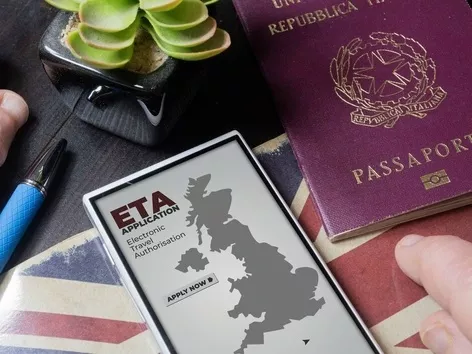Work in Thailand for foreigners in 2025: types of work visas, application procedure, where to look for work and popular vacancies
Table of contents
- Types of Work Visas for Working in Thailand in 2025
- Thai Work Visa Requirements
- How to apply for a Thailand work visa?
- How do I extend my work visa in Thailand?
- Do you need to know the language to work in Thailand?
- Where to look for work in Thailand?
- Where do foreigners work in Thailand (popular jobs)?
- Minimum and Average Wage in Thailand
- Length of the workweek in Thailand

Thailand is becoming a popular destination for foreigners looking to work in a variety of fields, thanks to its culture and economic development. Find out how to move to Thailand for work in 2025 and where most expats in the country work and how much they earn
With its vibrant culture, rich history, and fast-growing economy, Thailand is becoming an increasingly popular destination for foreign workers, including those from the UK, Germany, and Canada. Whether you want to teach English, work in the hospitality industry, or participate in the booming tech industry, Thailand offers a range of opportunities. However, to work legally in Thailand, you need to familiarize yourself with the country’s visa regulations and understand the job market. In this article, we’ll look at everything you need to know about working in Thailand for foreigners in 2025.
Choose a reliable health insurance policy on the Visit World portal to protect yourself from unforeseen expenses during your move. Support from a trusted insurance agent with a guaranteed payout in just a couple of clicks!
Types of Work Visas for Working in Thailand in 2025
To work legally in Thailand, foreigners must apply for a work visa. There are several types of work visas, but the most common are:
- Non-immigrant Visa B (Business Visa)
The most common work visa for foreigners. It allows foreign nationals to work in Thailand for a company or as a self-employed person, provided that the expat meets certain qualifications.
- Non-immigrant Visa B-A
This visa is for those who work for a company in Thailand, but requires the employer to prove that they are hiring foreigners for positions that cannot be easily filled by Thai citizens.
- Smart Visa
A special visa designed for professionals and investors in high-tech industries such as digital technology, innovation and science. It offers benefits such as longer stays and no need for a work permit.
- Teaching Visa
For those who wish to teach in Thailand, especially English. This usually requires proof of a degree and teaching qualifications such as TEFL/TESOL.
- Non-immigrant O Visa (Volunteer/Spouse of a Thai Citizen)
This visa allows you to stay in Thailand for other activities such as volunteering or as a spouse of a Thai citizen, but it does not automatically allow you to work in the country unless additional permits are granted.
Thai Work Visa Requirements
The documents required for a Thai work visa may vary depending on the type of work you will be doing, but you will generally need:
- Passport: valid for at least 6 months.
- Completed visa application form.
- Photos: usually 2 passport-sized photos.
- Employment Letter: from your employer in Thailand.
- Work Permit: approved by the Ministry of Labor of Thailand.
- Education Certificates: Depends on the job, such as a degree or qualification.
- Medical Certificate: A certified medical certificate stating that you are free from serious illnesses.
- Visa Fee: Usually between USD 30 and USD 100 depending on the type of visa.
How to apply for a Thailand work visa?
The process of applying for a Thailand work visa usually involves the following steps:
Step 1 – Find a job
First, you must receive a job offer from a Thai employer, who will then assist you with the visa process.
Step 2 – Obtain a work permit
Once you receive a job offer, your employer will apply for a work permit on your behalf. This is a necessary step before applying for a visa.
Step 3 – Apply for a visa
Once your work permit is approved, you can apply for the appropriate visa at the Thai embassy or consulate in your country. Some countries allow you to apply for your visa online, but most require you to apply in person.
Step 4 – Get a medical examination
Some types of work visas require proof of health. You may need a medical certificate stating that you are free of diseases such as tuberculosis.
Step 5 – Approval and Entry
Once approved, you will receive a visa that will allow you to enter Thailand. Once in the country, you will need to complete the registration of your work permit.
How do I extend my work visa in Thailand?
In most cases, a work visa is issued for a period of one year. You can extend it by visiting the Thai immigration office and providing the necessary documents, which include: a valid work permit, passport, recent photos, proof of continued employment, and an application for extension.
In some cases, your employer can continue the process on your behalf. An extension is usually granted, but it is important to apply before the current visa expires.
Do you need to know the language to work in Thailand?
While Thai is not a strict requirement for most foreign jobs, it certainly helps. In industries such as tourism, hospitality, and education, English is often sufficient. However, learning basic Thai can make it easier to communicate in everyday situations, build relationships with local colleagues, and expand job opportunities in fields such as marketing, business, and teaching.
In fields such as healthcare, legal services, and government work, Thai is essential as it is often necessary for professional communication and understanding local laws and regulations.
Where to look for work in Thailand?
There are several ways in which foreigners can search for job opportunities in Thailand:
1. Online job portals: Websites such as JobsDB, JobThai, and LinkedIn are popular platforms where both international and local companies post job openings.
2. Employment Agencies: These agencies can help you find jobs based on your qualifications, although they may charge a fee for their services.
3. Social Media and Networking: Networking opens up many opportunities, especially in industries like technology, startups, and education.
4. Embassy and Government Resources: Some embassies provide job boards or have lists of job opportunities suitable for foreigners.
Where do foreigners work in Thailand (popular jobs)?
Foreigners in Thailand tend to work in a variety of sectors, with some industries offering more opportunities than others:
- Teaching English
Teaching English as a foreign language is one of the most common jobs for foreigners. Schools, language centers, and even companies looking for corporate trainers often need English-speaking teachers.
- Tourism and Hospitality
The tourism sector is one of Thailand’s largest industries, with jobs in hotels, resorts, restaurants, and travel agencies.
- IT and Technology
The technology industry in Thailand is growing rapidly, with a growing demand for IT professionals, developers, and digital marketers.
- Healthcare
Foreign doctors, nurses, and healthcare professionals are in high demand, especially in international hospitals.
- Real Estate
The real estate sector is growing, with many foreigners working as agents or managing properties.
- Management and Business Development
Many multinational corporations have offices in Thailand and are in need of foreign managers, business developers, and project managers.
Minimum and Average Wage in Thailand
In 2025, the minimum wage in Thailand varies by province. In general, the minimum wage is around 300-350 Thai baht ($8.85-$10.30) per day, which is approximately 9,000-10,500 Thai baht ($265-$310) per month.
The average salary for foreign workers in Thailand can vary significantly depending on the industry and level of experience, for example:
- English teachers: 30,000-45,000 baht ($885-$1,325) per month.
- IT professionals: 50,000-100,000 baht ($1,475-$2,950) per month.
- Hotel and hospitality workers: 20,000-40,000 baht ($590-$1,178) per month.
- Executives and top managers: 70,000-150,000 (US$2,063-4,420) baht per month.
Salaries in Thailand are generally lower than in Western countries, but the cost of living is also relatively affordable, especially outside of Bangkok.
Length of the workweek in Thailand
The standard workweek in Thailand is 40 hours, usually spread over five days, with Saturday and Sunday as the days off. However, depending on the industry, certain jobs may require more hours, especially in sectors such as hospitality or retail. Overtime pay is common for employees who work more than the standard 40 hours.
Thailand continues to be an attractive destination for foreign workers in 2025. With the right qualifications and the right work visa, foreigners can work in a variety of industries and enjoy unique cultural experiences. By understanding the visa application process, job opportunities, expected salary, and general working conditions, foreigners can successfully navigate the Thai job market and thrive in this dynamic country.
Get advice from an employment lawyer to find out all the intricacies of finding a job and obtaining a work visa in Thailand.
Visit World’s qualified specialists are your reliable support when migrating abroad!
Reminder! In 2025, Thailand introduced significant updates to its Long-Term Resident (LTR) program to make it easier for foreigners to move. We have already told you who will be interested in obtaining an LTR permit and what the rules for obtaining a permit are relevant in 2025.
Products from Visit World for a comfortable trip:
Checklist for obtaining a visa and necessary documents in Thailand;
Legal advice on immigration to Thailand;
Travel insurance for foreigners in Thailand;
Medical insurance all over the world.
We monitor the accuracy and relevance of our information, so if you notice any errors or inconsistencies, please contact our hotline.
Frequantly
asked questions
Are there job opportunities for foreigners in Thailand?
Is it easy to find a job in Thailand?
Which country is the easiest to get a job in?
Recommended articles
1 min
Employment
The European Union is actively working to address the problem of labor shortages in various sectors. Find out which professions are most in demand in the EU, what work visa options are available for foreigners in 2025, and what the Skills Alliance initiative is
24 Mar. 2025
More details1 min
Expats
UK Visa, Passport, and ETA Fees: current prices with changes in April 2025
The UK government has announced an increase in visa fees, effective from April 2025. Find out about the new fees for short-term and long-term visas, electronic ETAs, as well as permanent residence permits and passports
26 Mar. 2025
More details2 min
Work
The Australian Working Holiday Visa (WHV) allows young people from different countries to work and travel in Australia for a year with the possibility of extension. Find out who can get a visa and how to go through the application process in 2025
29 Mar. 2025
More details2 min
Employment
To legally work in Argentina, a foreigner must obtain a work visa. Find out what types of work visas are relevant in the country in 2025, how to look for a job, what positions foreigners work in, and much more useful information about employment in Argentina
29 Mar. 2025
More detailsAll materials and articles are owned by VisitWorld.Today and are protected by international intellectual property regulations. When using materials, approval from VisitWorld.Today is required.
